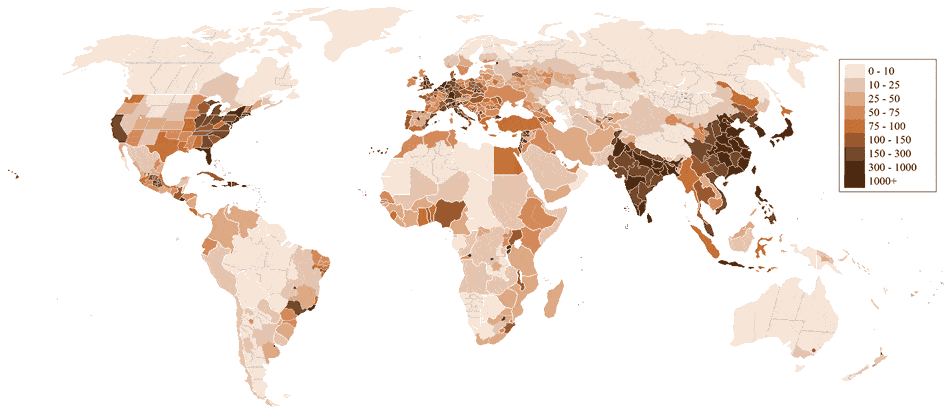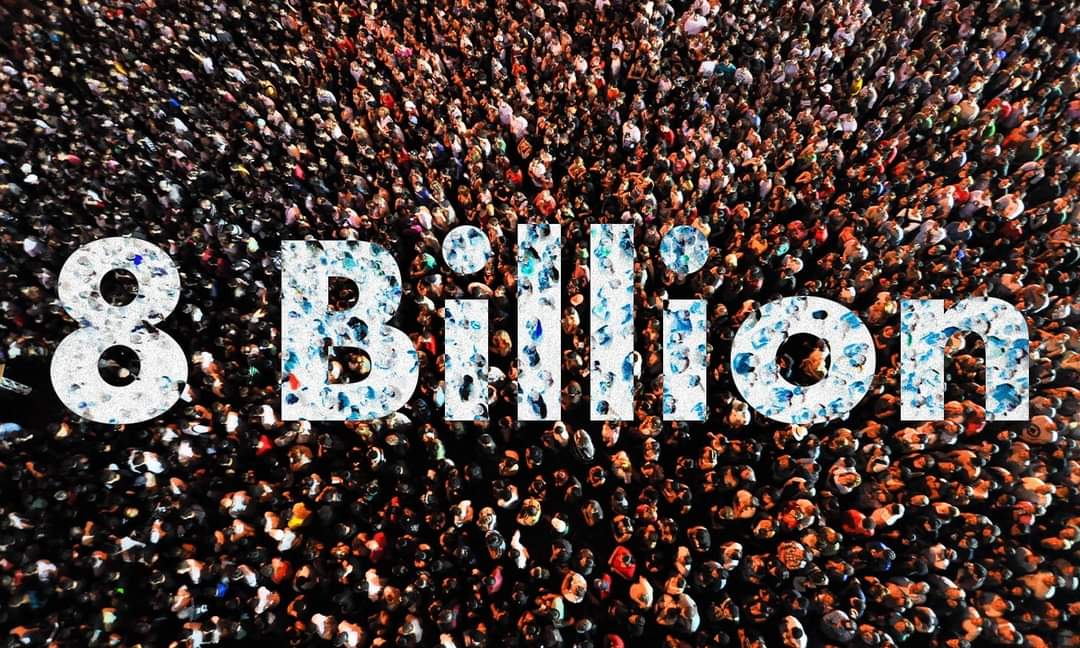Since the dawn of humanity, the population of our planet has steadily increased. A multitude of factors, both natural and societal, have influenced this extraordinary growth, shaping civilizations, economies, and the face of our planet. The impact of this burgeoning populace extends to every aspect of our lives, warranting a comprehensive exploration of its causes and far-reaching implications.

Image: classnotes.ng
A Historical Odyssey of Population Growth
The historical trajectory of human population growth has been marked by distinct epochs. Early humans subsisted on hunting and gathering, with population sizes hovering around a few million. The advent of agriculture triggered the first significant population surge, as settled societies relied on a stable food supply. The Industrial Revolution marked another pivotal moment, with technological advancements and improved living conditions leading to a dramatic increase in life expectancy and birth rates.
The post-World War II period ushered in an unprecedented acceleration in population growth, known as the “population explosion.” Advances in medicine, public health measures, and reduced mortality rates dramatically increased the number of individuals surviving into adulthood. This trend was particularly pronounced in developing countries, where improved sanitation and nutrition further contributed to a reduction in infant mortality.
Social and Economic Factors at Play
The rise in global population can be attributed to a complex interplay of social, economic, and technological factors. Economic growth has led to improved living conditions, while the decline in mortality rates has offset the fall in fertility rates. Access to healthcare, education, and contraception has also influenced population trends.
Urbanization has been a significant factor, with cities offering access to employment, education, and healthcare facilities, attracting people from rural areas. Government policies, such as family planning programs and incentives for childbearing, have also influenced population growth at various times and in different regions.
The Impact on Planet Earth
The burgeoning population has profound implications for our planet’s resources and ecosystems. As human numbers swell, the demand for food, water, and energy intensifies. This has spurred the conversion of natural habitats into farmland and increased pressure on marine ecosystems, leading to concerns over food security and biodiversity loss.
Population growth also contributes to pollution and climate change. Industrial processes and urban sprawl release greenhouse gases into the atmosphere, while the burning of fossil fuels to meet energy demands exacerbates global warming. The consequences extend to ocean acidification, sea-level rise, and more extreme weather events, posing significant challenges to future generations.

Image: www.gbcghanaonline.com
Tackling Global Population Growth
Addressing the challenges posed by unchecked population growth requires a balanced approach. The focus should not be on minimizing numbers but rather on improving the quality of life for all individuals. Investing in education, empowering women, and providing access to healthcare, including family planning services, can help stabilize population growth in the long run.
Addressing the root causes of poverty and inequality is also essential. Sustainable economic growth that fosters opportunity and equity can reduce the pressure on individuals to have large families as a means of social safety. International cooperation is also crucial, as population dynamics often transcend national borders and require a global perspective.
The World Population Has Grown Very Rapidly Why
Conclusion
The accelerated growth of the world’s population is a multifaceted phenomenon that has undoubtedly reshaped our world. Understanding the causes and implications of this demographic shift is paramount to navigating the complexities of the 21st century. By embracing a holistic approach that emphasizes education, equity, and environmental sustainability, we can mitigate the challenges posed by a growing populace while building a secure and prosperous future for generations to come. It is through informed decision-making and collaborative action that we can ensure the well-being of both humankind and our planet.